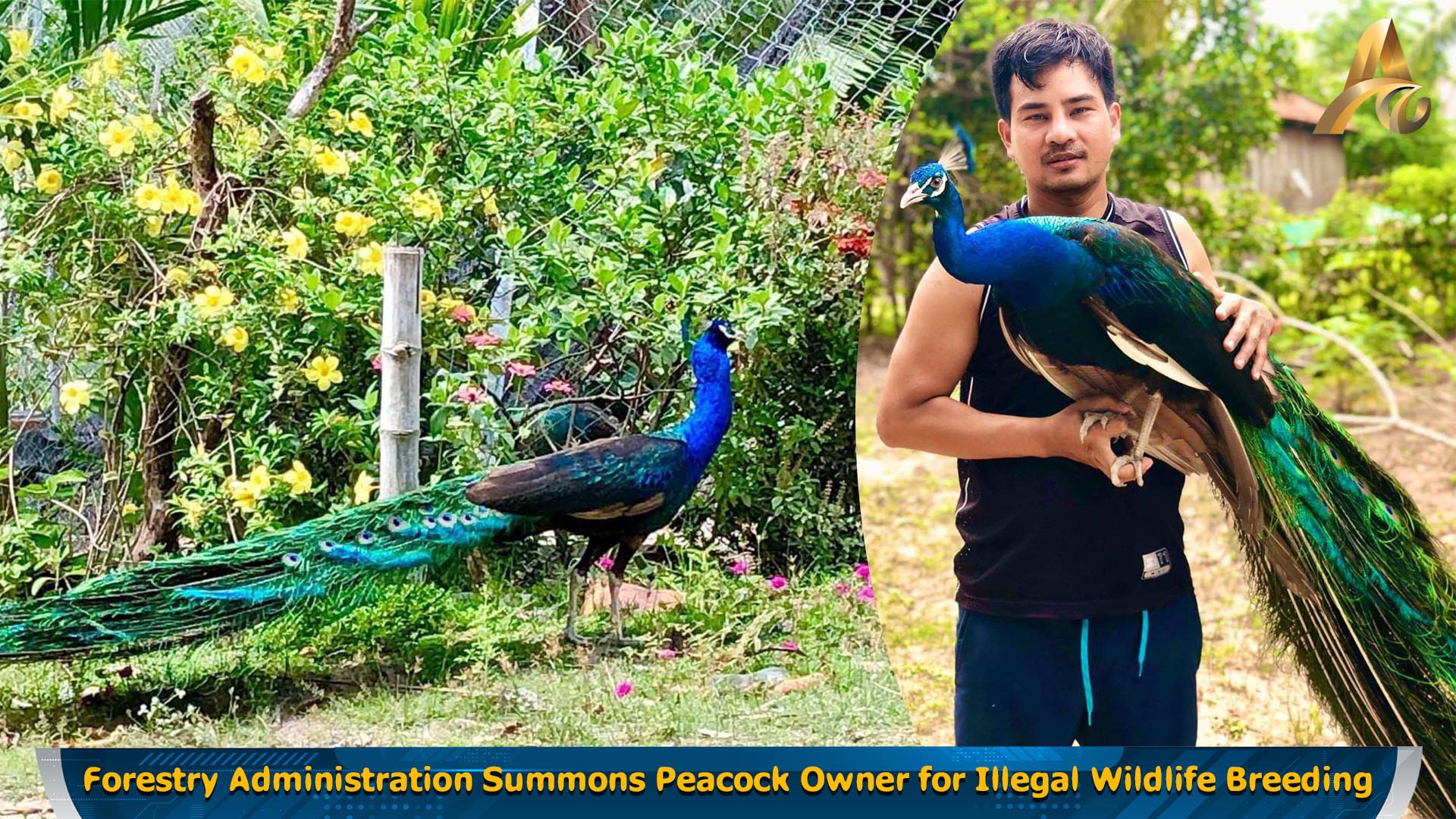KAMPONG CHHNANG: A delegation from the Royal Government of Cambodia in charge of the Forestry Administration, headed by Director Keo Omalis, has issued a letter inviting a peacock owner, Yim Sam Oeun, to come forward and continue proceedings to end a wildlife crime case involving illegal breeding without a permit. The letter summons Yim Sam Oeun to the Forestry Administration of Kampong Chhnang Province on Friday, 3 March 2023 at 9:30 am.
On 16 February 2023, animal conservation officers confiscated six peacocks raised by Mr. Yim Sam Oeun in Snlong village, Trapeang Chan commune, Baribo district, Kampong Chhnang province. The peacocks were seized and sent to Phnom Tamao Zoological Park under suspicion that Yim Sam Oeun had bred them without an authorization permit from the Forestry Administration.
Yim Sam Oeun's family have posted a public message under account name Yuth Thearnear, expressing dissatisfaction with the actions of the conservation officials who the family says has been capturing their animals for 10 years. They requested for Prime Minister Hun Sen's intervention in this case.
Later, on Saturday, 25 February, a representative for the family and sister of the peacock owner, Yim Chanrong, wrote a letter apologizing for the previous post made by her family and admitting that she was at fault for not considering the law of the Forestry Administration.
"I apologize to all authorities and relevant institutions for my actions regarding the Facebook post on raising peacocks without a legal basis, which hurt [the image of] law enforcement officials," she wrote. "I promise to delete all pictures and articles posted on Yuth Thearnear's Facebook account."
Forestry Administration Director, Keo Omalis, also released a video clarifying the case on Sunday, 26 February, claiming that before conservationists raided and confiscated the peacocks from Yim Sam Oeun's family, officials had been investigating this case for some time. Experts also found evidence that Yim Sam Oeun was involved in wildlife trafficking and trade involving Cambodian and Indian peacocks.
"The trade of this rare animal is prohibited and punishable under the Forestry Law, which carries a maximum sentence of one to five years in prison," he said. "In addition, the import of this animal also leads to the import of various diseases, so [only] import with permission is justified to ensure legality and the prevention of various diseases [entering the country]."
In the four-minute video, he also touched on how raising rare animals is illegal and has a negative impact on Cambodia as the country continues to implement anti-money laundering laws and the CITES Convention.
"If we do not do this, the country will face suspension in the trade of flora and fauna," he said. "Again, we face putting Cambodia on a gray list or a blacklist."
He added, however, that raising animals is still allowed only for those which have a clear, legal source and which are relatively rich species. In the past, the Forestry Administration has allowed the raising of wild pigs, deer and oxen.
According to Article 48 of the Forestry Law, all species of wildlife in Cambodia are the property of the state and are a component of forest resources, including mammals, birds, reptiles, vertebrates and invertebrates, as well as their eggs.
All wildlife in Cambodia are under the control and conservation of the Forestry Administration, excluding fish and aquatic animals. According to the law, wildlife specimens, including dead animals (whether whole, internal, external, bone fragments or processed products) are all under the jurisdiction of the Forestry Administration. All wildlife are divided into three species categories: endangered, rare, and moderately endangered.
Pursuant to Article 93 of the Law on Forestry, the perpetrators of Class II forest crimes shall be imprisoned from one to five years, shall be fined from 10 to 100 million riel and all exhibits shall be confiscated as state property.



























